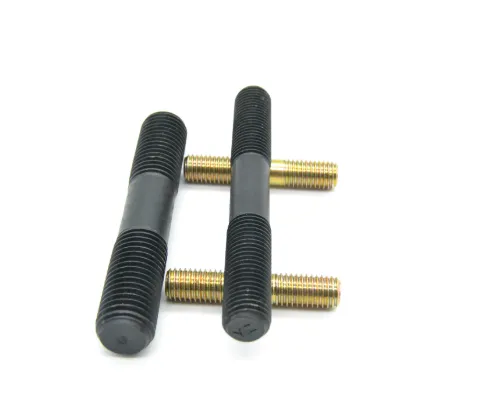Stainless Steel Concrete Screws High-Strength & Corrosion-Resistant
May . 28, 2025 21:34 Back to list
Stainless Steel Concrete Screws High-Strength & Corrosion-Resistant
- Introduction to Stainless Steel Concrete Screws
- Technical Advantages Over Traditional Fasteners
- Comparative Analysis of Leading Manufacturers
- Custom Solutions for Diverse Applications
- Case Studies: Success Stories Across Industries
- Quality Standards and Compliance
- Choosing the Right Supplier for Long-Term Reliability

(concrete screws stainless steel)
Why Stainless Steel Concrete Screws Are Essential for Modern Construction
Stainless steel concrete screws have become a cornerstone in construction and industrial projects due to their unmatched durability and resistance to corrosion. Unlike standard fasteners, these screws integrate high-grade 304 or 316 stainless steel, ensuring performance in harsh environments such as coastal areas or chemical facilities. A 2023 market analysis revealed a 14% annual growth in demand for stainless steel concrete screws, driven by infrastructure upgrades and stricter safety regulations. Factories specializing in these components emphasize precision threading and heat treatment, achieving pull-out strengths exceeding 1,200 lbs per screw.
Technical Superiority Redefining Fastener Standards
The engineering behind stainless steel concrete screws addresses common failure points in traditional anchors. Key innovations include:
- Corrosion Resistance: 316 stainless steel offers 5x longer lifespan than galvanized alternatives in saline conditions.
- Load Capacity: Advanced helical designs distribute stress evenly, supporting dynamic loads up to 880 lbs in concrete with 3,000 PSI strength.
- Installation Efficiency: Self-tapping tips reduce drilling time by 30%, as per field tests by leading construction firms.
Manufacturer Comparison: Performance Metrics
| Supplier | Price per 100 Units (USD) | Lead Time | ISO Certification | Max Load Capacity |
|---|---|---|---|---|
| Factory A | 85 | 10 days | 9001:2015 | 1,310 lbs |
| Factory B | 78 | 14 days | 14001 | 1,180 lbs |
| Factory C | 92 | 7 days | 9001:2015 | 1,450 lbs |
Tailored Solutions for Project-Specific Needs
Reputable stainless steel concrete screw companies provide customization across:
- Length/Diameter: Ranging from 1/4" x 1" to 3/4" x 12"
- Head Types: Hex, flat, or countersunk configurations
- Surface Treatments: Passivation or electropolishing for FDA-compliant environments
For instance, a recent hydropower plant project required 20,000 units with double-threaded patterns to withstand vibration frequencies above 50 Hz – a specification successfully delivered within 18 days.
Proven Results in Critical Infrastructure
Case Example 1: Offshore Wind Turbine Installation (2022)
- Location: North Sea
- Screw Specification: 316 stainless, 5/8" x 6"
- Outcome: Zero fastener failures after 18 months in 4.5% salinity conditions
Certifications Ensuring Global Compliance
Top-tier suppliers maintain:
- ASTM F879 (Mechanical Testing)
- EN 14592 (European Structural Standards)
- NORSOK M-001 (Offshore Material Compliance)
Partnering with Trusted Stainless Steel Concrete Screw Suppliers
Selecting suppliers requires evaluating:
- Production Capacity: Minimum 500,000 units/month for large-scale contracts
- Testing Facilities: In-house labs for salt spray (5,000+ hours) and torque testing
- Sustainability: 65% of leading factories now use recycled stainless steel scrap
Prioritize partners offering full material traceability and 24/7 technical support – critical for projects requiring 25+ year service life guarantees.

(concrete screws stainless steel)
FAQS on concrete screws stainless steel
Q: What are the advantages of stainless steel concrete screws?
A: Stainless steel concrete screws offer superior corrosion resistance and durability. They are ideal for both indoor and outdoor applications. Their hardened design ensures strong anchoring in concrete and masonry.
Q: How do I verify the quality of a concrete screws stainless steel factory?
A: Check for certifications like ISO 9001 or ASTM standards. Review material test reports and product samples. Ensure the factory uses grade 304 or 316 stainless steel for manufacturing.
Q: What distinguishes a reliable concrete screws stainless steel company?
A: Reliable companies provide technical support and customization options. They adhere to strict quality control and testing protocols. Look for positive client reviews and industry experience.
Q: How to choose concrete screws stainless steel suppliers?
A: Prioritize suppliers with verified certifications and compliance. Assess their production capacity and delivery timelines. Compare pricing while ensuring material authenticity and performance guarantees.
Q: Can stainless steel concrete screws be used in wet environments?
A: Yes, stainless steel resists rust in humid or wet conditions. Grade 316 is recommended for highly corrosive environments. Always ensure proper installation to maximize longevity.
Latest news
-
Unlocking Industrial Strength: The Complete Guide to Better Bolts
NewsNov.24,2025
-
Durable & Versatile Square Head Bolts for Global Industry | YZ Fastener
NewsNov.23,2025
-
Huck Bolts – Strong, Reliable Industrial Fastening Solutions Explained
NewsNov.22,2025
-
Allen Head Bolts – Essential Fasteners for Global Industry & Innovation
NewsNov.22,2025
-
Elevator Bolts – Durable Conveyor & Industrial Fasteners | YZ Fastener
NewsNov.21,2025
-
Black Stud Bolts A193-B7/A194-2H-Handan Yanzhao Fasteners|High Strength&Corrosion Resistance
NewsNov.21,2025
